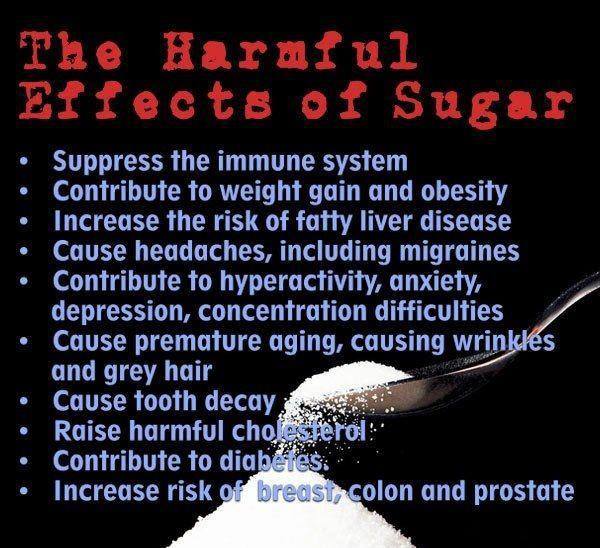Diabetes – Balance Your Blood Sugar, Balance Your Life

High blood glucose levels are toxic and have to be brought down quickly. To restore balance, your pancreas pumps out insulin, a hormone that moves glucose out of the blood and into your muscles and fat. If you constantly eat foods high in the glycemic index, you have to produce a lot of insulin to bring your blood glucose down. This information pertains to both diabetes and type 2 diabetes.
See more details: www.GlycemicIndex.com
With so many Americans suffering from obesity and diabetes, it is becoming more important than ever to be aware of your food’s effect on your blood sugar levels. Having high or low blood sugar can lead to myriad issues, such as decreased insulin sensitivity, mood swings, stress, mental fogginess, and headaches. But, luckily, if you follow the 10 Tips below you may create new habits that can benefit your insulin sensitivity and keep you healthy in the long term.
A Basic Introduction to Keeping Our Blood Sugar Levels Stable
Our digestive and hormonal systems help us extract sugars from the foods we eat and then “burn” them for fuel throughout the body. All our organs depend on a steady, stable supply of sugar, carried to them by the blood, for energy. Symptoms of unbalanced blood sugar can include anxiety, fatigue, irritability, indecisiveness, insomnia, and afternoon headaches. How do we create for ourselves a steady, balanced fuel supply?
Top 10 Ways to Balance Blood Sugar and Insulin
1) Don’t Skip Meals:
This throws your blood sugar and insulin into a tailspin. The body does much better eating 3 squares a day between the hours of 6 am to 6 pm. It’s easier on the intestines, the pancreas, and the digestive enzymes.
2) Eat Breakfast Every Day:
Start your day right with a breakfast that includes protein and is low in sugar: Skip the cereal, as it is high in sugar. Chia and hemp seeds are high in fiber, protein, omega-3, and magnesium. They are also great for weight loss and thyroid function.
Recipe – Grain-free Porridge:
Pour about 1/2 cup of boiling water over 2 tablespoons of Chia Seeds and 2 tablespoons of Hemp Seeds and let sit for 3-4 minutes. Add 1 teaspoon coconut oil or nut butter, and add coconut flakes, raw nuts, and fresh fruit as a topping. Be sure to add cinnamon. This wonderful-tasting spice has been shown to lower fasting blood sugar levels AND balance cholesterol levels. Cinnamon is recommended at amounts of 1 gram a day and if taken for 40 days will continue to promote benefits for an additional 20 days.
3) Avoid Sugary Drinks:
Skip the fancy coffee drinks full of sugar, fruit juice, and sugar-fortified drinks such as soda and save yourself 400 calories. A good replacement is a variety of herbal teas to increase your water. Being chronically dehydrated can cause you to eat more.
4) Supplement Magnesium:
Get 300-400mg of magnesium in your diet for insulin support. Magnesium enhances insulin secretion, facilitating sugar metabolism. Without magnesium, insulin is not able to transfer glucose into cells. Glucose and insulin build up in the blood causing various types of tissue damage.
5) Supplement Chromium:
Eat chromium foods for blood sugar balance. Chromium is a trace mineral and is essential to the body’s production of insulin. Insulin is a hormone that stabilizes the body’s blood sugar level. Chromium-rich foods include onions, tomatoes, nutritional yeast, oysters, mushrooms, and whole grains.
6) Time For An Oil Change:
Eat foods high in healthy oils such as salmon, olive oil, and avocado. Consider taking a good quality omega-3 supplement that has been tested for potency. Supplementing with Omega-3 fatty acids such as those found in flax oil and cold-water fatty fish, restores insulin sensitivity.
7) Eat “Quality” Protein Regularly:
Eating small protein-rich snacks between your meals will help maintain your blood sugar levels and your energy levels. These snacks can also keep your hunger levels stable so that you don’t overeat at your next meal. Eat a handful of almonds or walnuts.
8) Add Fiber:
Get 25-30mg of fiber every day. This is very important for all aspects of your health! Foods that quickly raise blood sugar levels are refined foods, primarily white sugar and flour. Eat foods high in fiber including apples, quinoa, bulky vegetables, nuts, and seeds.
9) Exercise:
At least 30 minutes most days of the week. Weight-bearing exercise uses up more glucose than cardio. Moderate exercise can increase the body’s sensitivity to insulin therefore increasing the effectiveness of insulin to maintain blood sugar within the normal range.
10) Meditate & Relax:
These are also crucial, to ensure the body is allowed time to ‘wind down’ amidst all the stressors of modern life. When under continuous stress, the body needs to find energy and this can cause excess sugar cravings. Yoga has been an incredible tool to bust stress and reduce cravings.
Denver Nutrition, LLC is owned and operated by Debbie Allen, a Functional Nutritionist.

As a Nutrition Therapy Master and Certified Holistic Health Practitioner, Debbie provides services based on credible medical research and scientific evidence. This site offers health, wellness, and nutritional information and is designed for educational purposes only. Please Note: Working with a nutritionist should not and does not take the place of medical advice or care. Before starting any nutrition program, please seek the advice of a medical doctor.
Contact me for a free 20-minute consultation!
Denver Nutrition, LLC | Transformation Through Nutrition
Contact Debbie | Services | Food Sensitivity Testing | Meet Debbie
